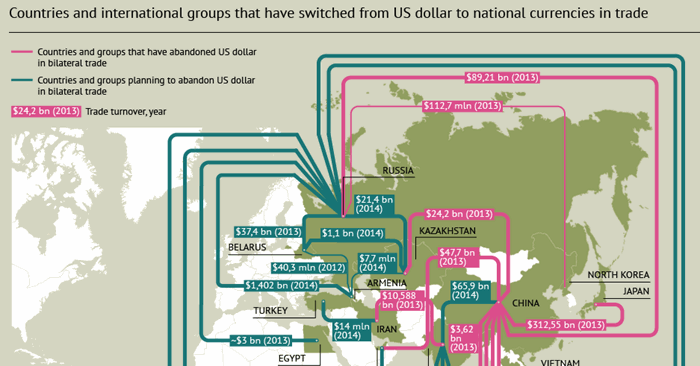How Will Central Banks Digital Currencies Affect The U.S. Dollar World Reserve Currency Status?
The article below was written by Sebastian Sinclair, the market and news reporter for CoinDesk operating in the South East Asia time zone. He has experience trading in the cryptocurrency markets, providing technical analysis, and covering news developments affecting the movements on bitcoin and the industry. He currently holds no cryptocurrencies.
The world is going digital when it comes to currencies but has been digital since we first started using Debit Cards and participating in online banking.
The U.S. dollar has been the World’s Reserve Currency since 1944 because the U.S. had a strong economy, and the dollar was backed by gold.
It has been almost 50 years since the dollar has been backed by gold, and the buying power for Americans has been dwindling because of overprinting and inflation.
The dollar dominance as the World’s Reserve Currency has been fading; however, it has a few things that keep it atop the Reserve Currency group of currencies.
- Every barrel of oil sold in the world is sold in dollars.
- Any currency looking to overtake the dollar would have to be drastically overprinted for every country to have it as a part of their reserve currency.
With practically every Central Bank talking about developing a Central Bank Digital Currency, it would not take much effort for any of the Central Banks to create enough of its Digital Currency to give the dollar a serious competitor for the top spot.
Chipping Away at the Dominance of the U.S. Dollar World Reserve Currency Status

China as a member of B.R.I.C.S. (Brazil, Russia, India, China, and South Africa) has already discussed creating a new global reserve currency at their annual meeting in June 2009.
B.R.I.C.S. was formed to get away from using the U.S. Dollar for trade. Instead, member countries would determine which country’s currency would be used to settle any trade-related debt.
The group with China as the lead also formed the Asia Infrastructure Investment Bank (AIIB) by putting up a combined $100 billion dollars to improve economic and social outcomes in Asia.
The AIIB has 103 members and 21 prospective members from around the world. Some believe the AIIB was developed to compete with the U.S.-dominated International Monetary Fund (IMF).
On October 1, 2016, the IMF added the Chinese Renminbi to its Special Drawing Rights basket of currencies that make up the World Reserve Currencies putting it on par with the U.S. Dollar, Japanese Yen, the Euro, and the British Pound.
With the development of Central Banks Digital Currencies and China having a lead, could this be another ploy by China to strengthen the Renminbi’s position as a Reserve Currency?
China is the world’s second-largest economy behind the United States, and with the financial events of the past 12 years would love to have the Yuan replace the dollar as the World’s Reserve Currency.
As always, conduct your own due diligence so that you can make an educated decision instead of one based on emotions.
Read the article below, leave a comment, share on your favorite social media pages, and subscribe to my blog so that you can be notified when new content is added.
The article below can be found at the following website URL:
US Will Not Race China to Develop a CBDC: Fed Chairman Powell
The U.S. is biding its time to see whether a CBDC was something that would be a “good thing for the people,” Powell said Wednesday.
Federal Reserve Chair Jerome Powell (CoinDesk archives)
Apr 29, 2021 at 5:08 a.m. EDT Updated Apr 29, 2021 at 9:43 a.m. EDT
China’s rush to develop its digital yuan will not push the U.S. into a digital currency race, the Federal Reserve’s chairman repeated on Wednesday.
Speaking after the Fed’s latest policy meeting, Jerome Powell reiterated previous statements that it was better to “get it right” than be first when it comes to developing a central bank digital currency (CBDC). Powell was adamant that China’s approach was not the one the U.S. should be taking.
“Far more important to get it right than it is to do it fast,” said Powell. “The currency that’s being used in China is not one that would work here. It’s one that really allows the government to see every payment for which it is used in real-time.”
Instead, the U.S. is biding its time to see whether a CBDC is something that would be a “good thing for the people that we serve” and ensure it is the right fit for those who rely on the dollar, said Powell.
China has been developing its CBDC with notable success, having completed various trials in an open lottery system gifting thousands of participants the opportunity to shop and experiment with the digital yuan.
